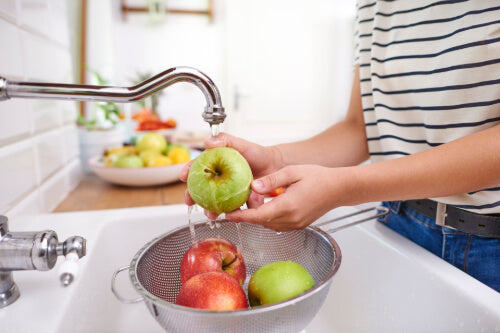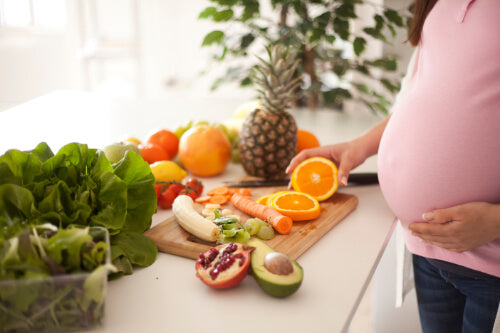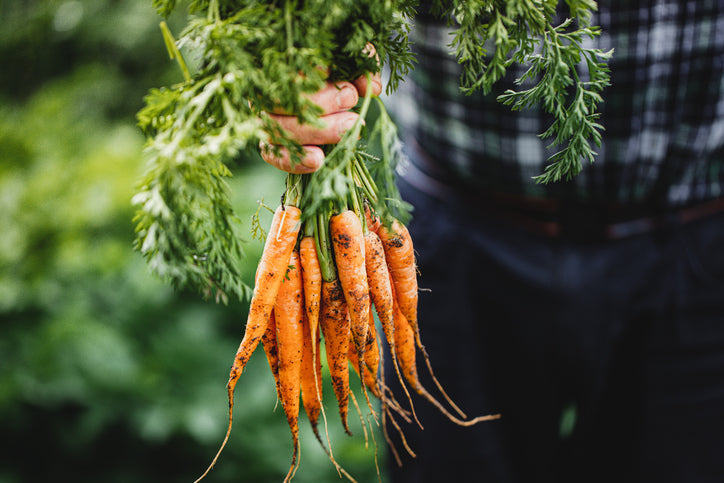We're in unprecedented times currently, and part of that means we all are taking a second look at how we live our lives, especially when it comes to cleanliness. Now, for some of you, this is completely new as you are also transitioning to the raw food diet, which is quite a shift in itself. For others, you may want to amp up the cleaning of your raw produce, especially during these times. Now more than ever, it's important to know how to clean your raw foods from potential contaminants.
The CDC has advised that coronavirus is not spread by eating food, however, you will likely touch the fruits and vegetables you are preparing, and then touch other surfaces, which could potentially spread the virus throughout your kitchen or house. While there's no way to know if fresh produce has been contaminated by others at the store, it's always better to proceed with caution, which is why we've put together a tutorial on how to clean your raw foods from potential contaminants.
- The first thing to note on how to clean your raw fruits and vegetables is to never use chemicals. Don't grab your disinfecting wipes, alcohol, bleach, or anything else that is a chemical. Soap is also out, even though it's safe to wash our hands and dishes, you never want to wash your fruit or vegetables with soaps or you could make yourself sick.
- Washing your fruit or vegetables beforehand is always the first step in preparing your foods and preventing contaminants. Rinse them under running water for at least 20 seconds or soak them in water to help get rid of potential contaminants.
- Wash your hands for 20 seconds with soap and water before touching any of your produce. The last thing you want to do is infect someone else if you are a carrier without any symptoms.
- Rinse produce that has a peel even before you peel it, as this will help prevent any transfer to a knife or to your cutting board surfaces.
- Use a clean vegetable brush to scrub firm produce such as melons and cucumbers. This will help to get any stuck-on contaminants and really get into the nooks and crannies of the produce.
- Dry produce with a clean cloth or paper towel to reduce any bacteria that may have remained during the cleaning process.
- Remove the outermost leaves of a head of lettuce or cabbage, just as a precaution.
- Rinse raw food items that are labeled pre-rinsed, such as carrots, spinach, and pre-mixed salads. Time will have likely eliminated any potential contaminants in between it being bagged and intake, but if not, better to be safe than sorry.







2 comments
Tina Renee Mathews
This article was extremely helpful and I learned a lot about how to properly wash and care for my fruits and vegetables.
Tina
This article was extremely helpful and I learned a lot about how to properly wash and care for my fruits and vegetables.
Tina
j fressel
good stuff.thanks
good stuff.thanks